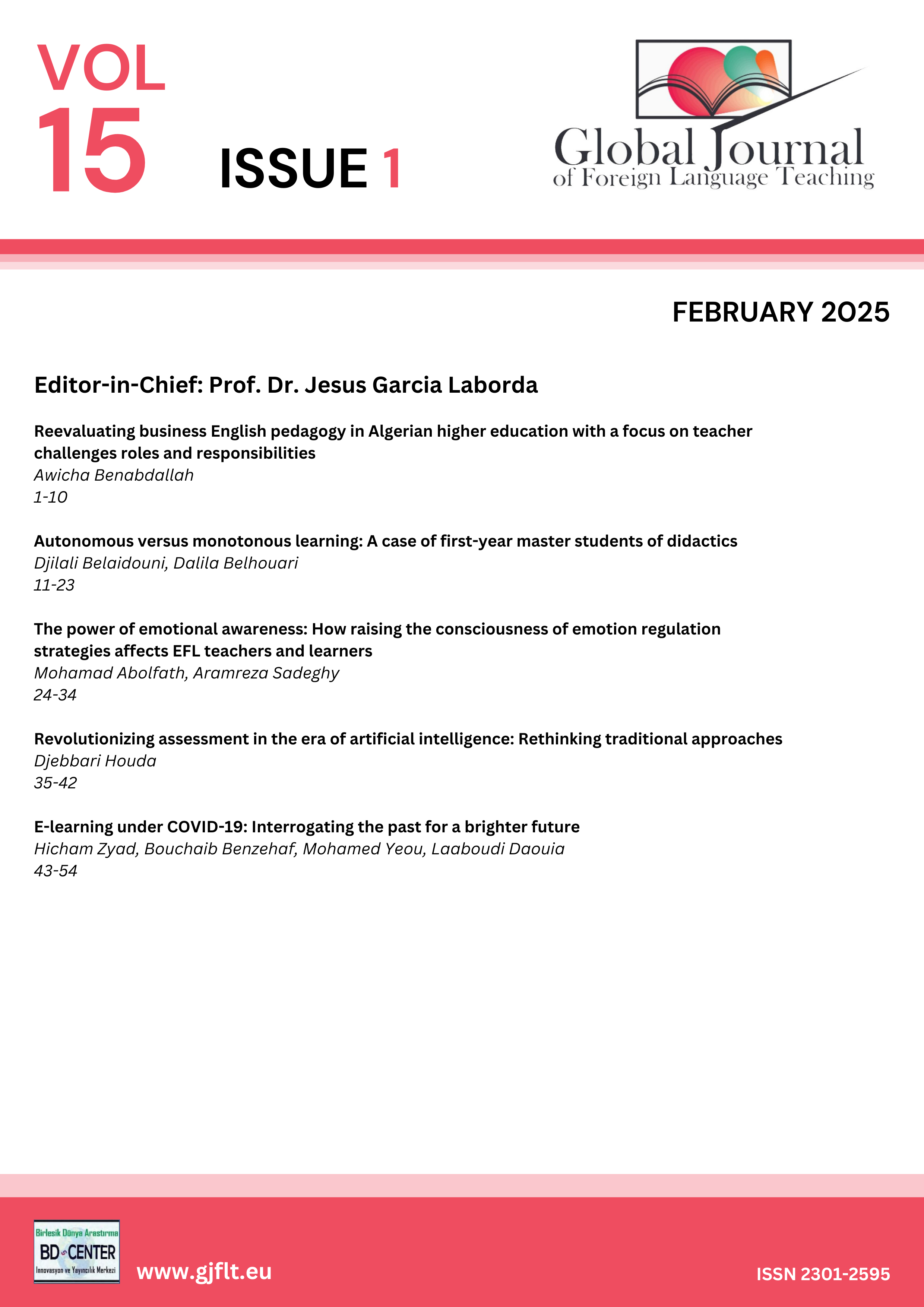E-learning under COVID-19: Interrogating the past for a brighter future
Main Article Content
Abstract
The COVID-19 pandemic prompted a surge of studies focused on the limitations of distance education during lockdowns. However, there is a significant gap in research comparing students' academic achievements under normal circumstances with those in emergency remote teaching environments. Addressing this gap is crucial to identify shortcomings in e-learning during crises and to develop strategies for improving technology-mediated education. This study aims to fill this gap by comparing two groups of Moroccan university-level EFL (English as a Foreign Language) students in terms of grammar knowledge transfer to writing ability. A convenience sample of 315 students' argumentative essays was evaluated based on various measures of writing quality and grammar application. Findings indicate that students in the traditional classroom setting outperformed their peers in the e-learning group, particularly in writing quality and grammar knowledge transfer. The study attributes these differences to factors such as student psychology, teacher training, attitudes toward technology, and socio-economic challenges. The paper concludes with recommendations for enhancing the effectiveness of emergency e-learning in future crises, with a focus on better preparation, teacher support, and addressing technological barriers.
Keywords: COVID-19; e-learning; impediments; grammar transfer; writing ability
Downloads
Article Details

This work is licensed under a Creative Commons Attribution-NonCommercial-NoDerivatives 4.0 International License.
Authors who publish with this journal agree to the following terms:- Authors retain copyright and grant the journal right of first publication with the work simultaneously licensed under a Creative Commons Attribution License that allows others to share the work with an acknowledgement of the work's authorship and initial publication in this journal.
- Authors are able to enter into separate, additional contractual arrangements for the non-exclusive distribution of the journal's published version of the work (e.g., post it to an institutional repository or publish it in a book), with an acknowledgement of its initial publication in this journal.
- Authors are permitted and encouraged to post their work online (e.g., in institutional repositories or on their website) prior to and during the submission process, as it can lead to productive exchanges, as well as earlier and greater citation of published work (SeeThe Effect of Open Access).
